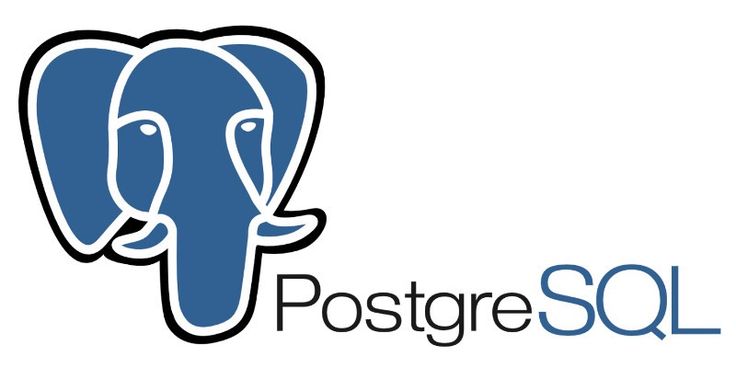What is PostgreSQL? Easy Intro to a Top Database
Last updated on April 23, 2025
It’s likely that you’ve heard about PostgreSQL if you’ve been learning about databases. Perhaps you’ve heard about it at tech meetups or seen it mentioned in developer forums. However, what is it? We’ll explore what PostgreSQL is, how it stacks up against other well-known databases like MySQL, and why developers love it in this approachable tutorial. Stay put because you’ll leave knowing exactly how to use this effective instrument!
What is PostgreSQL?
Let’s begin with the fundamentals. PostgreSQL, commonly referred to as Postgres, is an object-relational database management system (ORDBMS) that is open-source. To put it simply, it’s a system that facilitates the safe and efficient storage, management, and recovery of data.
PostgreSQL is made to handle complicated queries and enormous volumes of data, as compared to basic databases that can only handle simple data. Since its inception in 1986 at the University of California, Berkeley, it has been developing with the support of an enthusiastic open-source community.
The reliability, adaptability, and standards compliance of PostgreSQL make it a popular choice. Additionally, it supports JSON (JavaScript Object Notation) and SQL (Structured Query Language) queries, which makes it incredibly flexible for contemporary applications.
Important PostgreSQL Features
Understanding what is PostgreSQL isn’t complete without exploring its main features. What distinguishes it is this:
- ACID Compliance: PostgreSQL is ideal for applications that require data integrity because it ensures that transactions are performed consistently.
- Support for Advanced Data Types: It can work with custom types, JSON, XML, arrays, and hstore (key-value pairs).
- Extensibility: New operators, data types, and functions can be added by developers. PostgreSQL is genuinely adaptable to your specific requirements!
- Concurrency: It manages several operations without compromising efficiency because of a feature known as Multi-Version Concurrency Control (MVCC).
- Security: Your data is protected by SSL connections, strong authentication techniques, and comprehensive access-control measures.
- Community Support: Because it is open-source, it has a sizable and vibrant community that is always exchanging expertise and pushing for improvements.
PostgreSQL vs MySQL: Which One Is Better?
The PostgreSQL vs MySQL debate is one that new database users frequently encounter. Both are strong and open-source, although their functions are a little different.
Performance and Flexibility
MySQL is frequently recognised for its ease of use and performance, which makes it an excellent option for small to medium-sized online applications. On the other side, PostgreSQL excels at managing intricate queries and huge databases with numerous dependencies and relationships.
MySQL can be the solution for your project if speed is more important than complexity. However, PostgreSQL is probably a better option if you’re creating anything strong, such as a financial application, data analysis tool, or large-scale SaaS product.
Standards and Compatibility
In addition to providing sophisticated capabilities like window functions, common table expressions (CTEs), and full-text searches, PostgreSQL tightly adheres to SQL standards. In many areas, MySQL falls somewhat short, particularly when dealing with more intricate database systems.
Stored Procedures
Although stored procedures are supported by both databases, PostgreSQL’s implementation is far more reliable. PL/pgSQL, PL/Python, PL/Perl, and other languages can be used to write stored procedures in PostgreSQL. This adaptability can have a significant impact on intricate business logic.
There isn’t a single, universal solution to the PostgreSQL vs MySQL argument. It depends on the requirements of your project. However, PostgreSQL frequently wins out if scalability, versatility, and standards compliance are your main concerns.

Understanding PostgreSQL Stored Procedures
After learning the fundamentals of PostgreSQL, let’s move on to something a bit more complex: PostgreSQL stored procedures.
Routines recorded within the database itself are known as stored procedures. You can save the SQL lines in the database and call them as needed, rather than repeatedly running them from your application code. It is comparable to developing small programmes within your database.
Stored methods in PostgreSQL are useful because:
- Improve Performance: Your apps run faster when fewer repetitive SQL queries are required.
- Enhance Security: You can improve the security of your database by restricting direct access to data and enabling only particular stored processes to carry out operations.
- Simplify Code Maintenance: Instead of being spread throughout your program, business logic remains within the database.
- Support Transactions: PostgreSQL gives you more control over database operations by enabling stored procedures to handle transactions, including COMMIT and ROLLBACK commands.
This is a small illustration of a basic PostgreSQL stored procedure:
CREATE OR REPLACE PROCEDURE add_employee(emp_name TEXT, emp_salary NUMERIC)
LANGUAGE plpgsql
AS $$
BEGIN
INSERT INTO employees(name, salary) VALUES (emp_name, emp_salary);
END;
$$;
You may now add an employee with a single command instead of repeatedly spelling out a whole INSERT statement!
Why Developers Love PostgreSQL
One may ask why PostgreSQL appears to have such a loyal user base. This is the reason:
- Reliability: PostgreSQL databases frequently function flawlessly for years at a time.
- Constant Innovation: While maintaining backward compatibility, every new release adds state-of-the-art features.
- Freedom: There is no vendor lock-in while using PostgreSQL. You are free to modify and change it as you see fit.
- Strong Community: There are a lot of tutorials, forums, and knowledgeable people ready to help if you ever run into problems.
- Cross-Platform Compatibility: PostgreSQL is compatible with Windows, Linux, and macOS, among other major operating systems.
To put it briefly, PostgreSQL gives you more capabilities with your data than just protecting it.
Wrapping Up
What is PostgreSQL, then? It is a dependable, potent engine for creating real, data-driven applications, and it is much more than just a database. PostgreSQL provides the resources you need to be successful, regardless of whether you’re developing a tiny application or an enterprise-level system.
In the PostgreSQL vs MySQL argument, PostgreSQL performs well when demanding scalability, rigorous data integrity, and sophisticated queries. Additionally, you may construct effective, safe, and maintainable applications with its sophisticated features, such as PostgreSQL stored procedures.
Don’t worry about learning everything at once if you’re just getting started. Start small, try different things, and soon you’ll be comfortable using PostgreSQL.
Are you prepared to try it? Install PostgreSQL immediately and get exploring—this is the beginning of your adventure with sophisticated databases!
April 18, 2025



